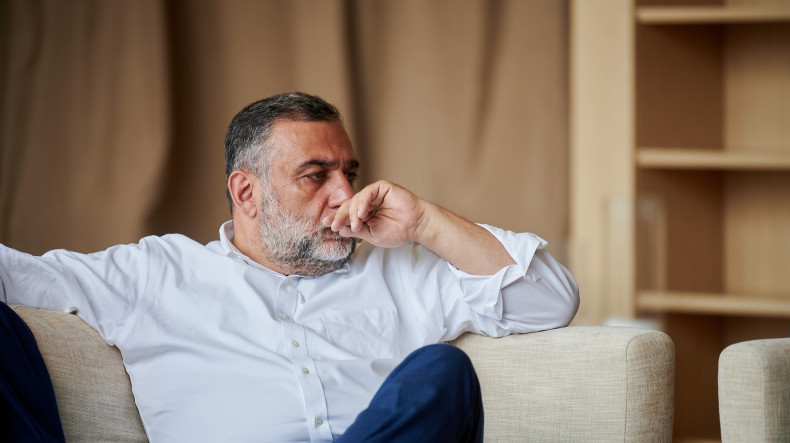
Ruben Vardanyan, other Armenian leaders mark one year as political prisoners in Azerbaijan
Today marks the first anniversary of the arbitrary arrest by Azerbaijani authorities of eight Armenian leaders, commencing with the arrest of social entrepreneur and philanthropist, Ruben Vardanyan.
The eight Armenian leaders were illegally arrested in September and October 2023 after Azerbaijan launched a military offensive in the Nagorno-Karabakh region, causing the population of 120,000 ethnic Armenians of Nagorno-Karabakh to become refugees and flee their homes.
“My father’s arbitrary detention without any evidence or due process is a clear violation of all international norms and laws,” says David Vardanyan, son of Ruben Vardanyan. “We call on the international community to intensify efforts to secure his immediate and unconditional release alongside the other political leaders illegally detained in Azerbaijan.”
Despite appeals from business and community leaders as well as members of the European Parliament, the French Parliament, UK House of Commons and House of Lords, and U.S. Congress for their release, Ruben Vardanyan remains in pre-trial detention without even a trial date or formal charges brought against him, Free Armenian Prisoners reports.
“A year of detention without trial or concrete evidence demonstrates the political nature of this case,” says Jared Genser, international legal counsel for the Vardanyan family. “Azerbaijan must respect its obligations under the International Covenant on Civil and Political Rights and immediately release Ruben Vardanyan.”
Vardanyan briefly served as Nagorno-Karabakh’s Minister of State and is a long-standing vocal critic of the government of Azerbaijan for its mistreatment of ethnic Armenians and violations of international law.
Azerbaijan’s worsening human rights record is drawing significant scrutiny as the country gears up to host COP29, the UN’s annual gathering of world leaders focused on combating climate change. Ahead of the conference in November, Azerbaijan has called for a “global truce” and pause to all ongoing conflicts, which has been widely criticized and many have accused Azerbaijan of hypocrisy, given the government’s increased crackdown on civil society, increased arrests of political prisoners and the military offensive against the Armenians of Nagorno-Karabakh.
Many human rights organizations, including Freedom House, assert that the country’s actions in Nagorno-Karabakh constituted ethnic cleansing, with ethnic Armenians “intentionally subjected to regular attacks, intimidation, deprivation of basic rights and adequate living conditions, and forced displacement by the Azerbaijani state.” Others, including former prosecutor at the International Criminal Court, Luis Moreno Ocampo, attest that Azerbaijan’s actions match the international crime of genocide.
“We need to give some signals to the government that we expect immediate actions on restrictions, on access to [COP29], on freedom of the press, and on the releasing of these political prisoners,” said Paul Polman, former Vice-Chair of the UN Global Compact and CEO of Unilever.
Polman joined more than 30 other leaders for a roundtable on the importance of human rights in climate action on September 25 on the sidelines of the UN General Assembly and New York Climate Week. The discussion featured experts from Freedom House, Transparency International, Reporters Without Borders, and others.
Azerbaijan has consistently dropped in the Freedom of the World report produced by Freedom House since 2017, and currently scores 7 out of 100 points. Transparency International ranks Azerbaijan 154th out of 180 countries in its Corruption Perceptions Index due to widespread corruption, crackdowns on rival politicians, and the limiting of civic space.
Related news
Newsfeed
Videos






























